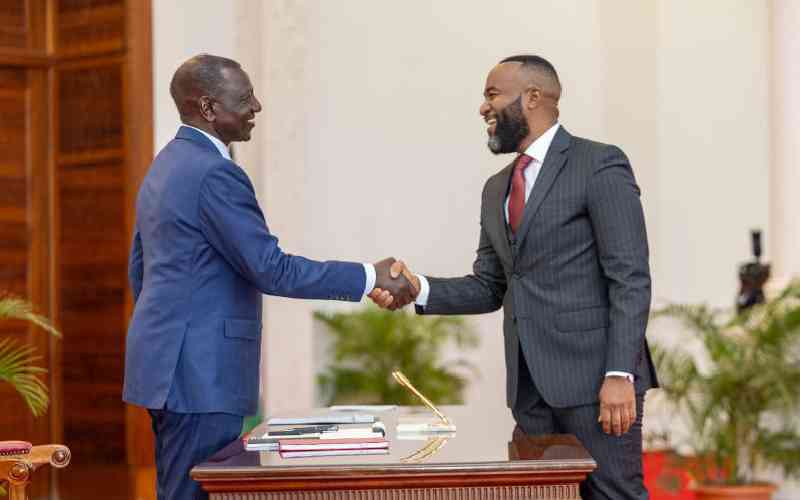
President William Ruto urged 'servant leadership' among the 19 Cabinet secretaries whose swearing-in ceremony he oversaw at State House yesterday, even as he announced measures to inspire public confidence, which is at its lowest since he took over power in 2022.
Amid barricades on roads leading to the event's venue, State House, owing to the Nane-Nane protests, the Head of State also seemingly wished away his government's troubles, blaming the youth-led demonstrations on 'fundamental misunderstanding' and 'sub-optimal communication', a contradiction of his later admission of service-delivery inadequacies in his previous Cabinet.